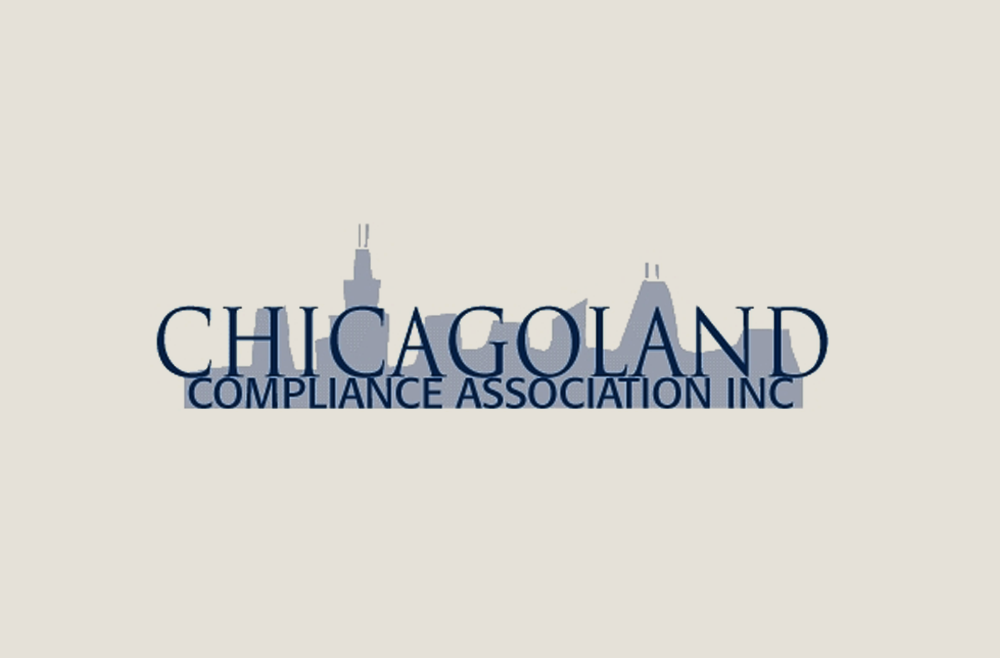Consumer & Class Action Litigation Newsletter - July 2013 Edition
Hinshaw Newsletter | 9 min read
Jul 12, 2013
- U.S. Supreme Court Affirms Use of Contractual Waiver of Class Arbitration
- U.S. Supreme Court Narrowly Interprets Drivers’ Privacy Protection Act’s “Litigation Exception” Rendering a Blow to Plaintiff’s Bar
- First Circuit Holds Imposition of Orders Enjoining All Foreclosure Proceedings Was Procedurally Improper
- Contacting Delinquent Borrowers on Behalf of Mortgage Companies Constitutes Debt Collection
- Illinois Appellate Court Holds That the ICAA § 8b Requirements Apply to All Assignments For Collection in the Chain of Title
U.S. Supreme Court Affirms Use of Contractual Waiver of Class Arbitration
On June 20, 2013, the U.S. Supreme Court held that a contractual waiver of class arbitration is enforceable under the Federal Arbitration Act when the plaintiff’s cost of individually arbitrating a federal statutory claim exceeds the potential recovery.
The case involved a group of merchants who sued a credit card company for violations of the federal Sherman Act. The credit card company moved to compel arbitration. The Supreme Court, reversing a decision by the U.S. Court of Appeals for the Third Circuit against the credit card company, stated that courts must rigorously enforce arbitration agreements according to their terms; this holds true for claims that allege a violation of a federal statute, unless the FAA’s mandate is overridden by a contrary congressional demand. There was no such congressional mandate here. Federal antitrust laws do not guarantee an affordable path to the vindication of every claim. Nor does the enactment of Fed. R. Civ. P. 23 establish an entitlement to class proceedings for violation of statutory rights.
The high court also declined the “effective vindication” exception of rights — a doctrine the Court has discussed in terms of invalidating arbitration agreements that operate as a prospective waiver of a party’s right to pursue statutory remedies. The Court determined that “the fact that it is not worth the expense involved in proving a statutory remedy does not constitute the elimination of the right to pursue that remedy.” The Court explained that its decision in AT&T Mobility LLC v. Concepcion, --- U.S -----, 131 S.Ct. 1740, 179 L.Ed.2d 742 (2011) all but resolved this case. There, the Court invalidated a law conditioning enforcement of arbitration on the availability of class procedure because the law interfered with fundamental attributes of arbitration.
Thus, even when faced with a federal statutory claim with evidence in the record of potentially relatively small recoveries, the Court upheld the parties’ arbitration clause even though it did not allow class arbitration. The reasoning of this case supports the upholding of class waivers in arbitration agreements when federal statutes are invoked.
American Express Co. v. Italian Colors Restaurant, Case No. 12-133, 2013 WL 3064410 (June 20, 2013)
For more information, please contact your regular Hinshaw attorney.
U.S. Supreme Court Narrowly Interprets Drivers’ Privacy Protection Act’s “Litigation Exception” Rendering a Blow to Plaintiff’s Bar
In Maracich v. Spears --- S. Ct. ----, 2013 WL 2922120 (Jun. 17, 2013), lawyers sued South Carolina car dealers on behalf of four people who had bought cars, alleging that the car dealers violated the state’s consumer protection law. To form a class action, the lawyers sought out additional plaintiffs by using contact information from the South Carolina Department of Motor Vehicles (DMV). The car dealers’ lawyers then sued on behalf of other South Carolinians who had then recently bought cars, alleging that using the information from the DMV violated the Drivers’ Privacy Protection Act (DPPA). That act prevents the use of a driver’s information from a state DMV without the driver’s prior permission.
The Supreme Court addressed the question of whether the DPPA’s provision that creates a “litigation exception” to its general ban on the use of driver data allowed the original lawsuit against the car dealers. The DPPA’s “litigation exception” allows the use of driver data “in connection with any civil . . . proceeding in any Federal, State, or local court . . . including investigation in anticipation of litigation.”
In a five-Justice majority opinion authored by Justice Anthony Kennedy, the Court held that the DPPA’s litigation exception does not apply to attorney solicitations of potential clients using DMV data. The DPPA generally protects highly sensitive information and, according to the Court, any exception should be read narrowly. The reference to “investigation in anticipation” extends only to activities to decide whether a potential claim has sufficient merit to warrant a lawsuit, or to locate witnesses, but not activities designed to sign up clients for a lawsuit. The case was remanded to the lower court for it to decide whether, viewed objectively, the predominant purpose of the lawyer’s use of the DMV information was for client solicitation (in which case it was illegal) or for some other permissible litigation-related purpose (in which case it was legal).
Maracich, et al. v. Spears, --- S. Ct. ----, 2013 WL 2922120 (June 17, 2013)
For more information, please contact your regular Hinshaw attorney.
First Circuit Holds Imposition of Orders Enjoining All Foreclosure Proceedings Was Procedurally Improper
The U.S. Court of Appeals for the First Circuit held that the U.S. District Court for the District of Rhode Island erred by entering an order enjoining all foreclosure proceedings on property that is the subject matter of any contested foreclosure lawsuit filed in federal court without satisfying the requirements provided in Fed. R. Civ. P. 65 regarding injunctions.
In August 2011, the district court assigned all contested foreclosure lawsuits to one docket, stayed litigation of approximately 65 cases, and undertook consideration of how to handle these administratively consolidated cases. At that time, the magistrate judge had recommended dismissal of two cases assigned to the docket, one of which was Fryzel, based upon the borrowers’ lack of standing to challenge the assignment of their mortgage.
In January 2012, the district court issued an order requiring all cases assigned to the docket to participate in a mediation program with a court-appointed special master. The mediation order did not include any time or cost limits and continued the stay of litigation for any case assigned to the docket. In March 2012, the district court clarified its stay order by providing that the stay prevented defendants from foreclosing on properties that are the subject of a pending complaint. Subsequently, several defendants with cases assigned to the docket appealed the stay and mediation orders and filed a petition for writ of mandamus on several bases, including: (1) that the district court erred in requiring mediation of every case assigned to the docket without first establishing jurisdiction and without any time or costs limits; and (2) that the district court violated Fed. R. Civ. P. 65 by issuing a stay that was in practice an injunction prohibiting nonjudicial property foreclosures.
The First Circuit held that the “imposition of the injunction was error for failing to satisfy Rule 65” and that “[a]s a consequence, the terms of the mandatory mediation, which the injunction prevents from mootness, need not be addressed in detail except to note its failure to conform to the standard of reasonable trial court discretion. . . .” The court noted that correction of these errors was complicated by the district court’s failure to address the merits of the injunction in any case, upon filing, and that the consolidated docket had grown to more than 700 cases at the time of its decision. To avoid chaos, the First Circuit did not vacate the orders but instead remanded the cases on appeal with orders that the district court schedule a hearing to determine whether the existing injunction against foreclosure should be continued. The First Circuit further ordered that if the district court determined that any currently consolidated cases are to remain on the docket, a further hearing should be scheduled to establish reasonable limits on the mandatory mediation. Hinshaw & Culbertson LLP handled the underlying cases and served as lead counsel on the appeal.
Fryzel v. Mortgage Electronic Registration Systems, Inc., --- F. 3d ----, 2013 WL 2896794 (1st Cir. June 14, 2013)
For more information, please contact your regular Hinshaw attorney.
Contacting Delinquent Borrowers on Behalf of Mortgage Companies Constitutes Debt Collection
In Simpson v. Safeguard Properties, LLC, 2013 WL 2642143 (Jun. 12, 2013), the U.S. District Court for the Northern District of Illinois held that plaintiff borrower sufficiently stated a Fair Debt Collection Practices Act (FDCPA) claim against a company that allegedly performed field services, including communicating with delinquent borrowers on behalf of mortgage companies.
The borrower received a notice from the mortgagee in January 2012, stating that her note and mortgage were in default. Between October 2012 and February 2013, the borrower received five separate notices left on her door, instructing the borrower to “please call” and to “please be ready to give your account number,” and indicating that “we are expecting your call today”; each notice included the mortgagee’s phone number. The borrower sued for violations of the FDCPA, alleging that defendant loan servicer left the notes in its capacity of performing field agent services for the mortgagee.
The loan servicer argued that the allegations in the complaint established that it was not a debt collector. The court noted that the well-pleaded facts in the complaint, and reasonable inferences drawn from them, plausibly suggested that the servicer met the FDCPA’s definition of debt collector. Because the borrower pled that the servicer marketed its services to mortgage companies, it was reasonable to infer that it attempted to regularly facilitate the collection of debts, which was sufficient to allege that the servicer was a debt collector under 15 U.S.C. § 1692a(6), as it: “. . . regularly collect[ed] or attempt[ed] to collect, directly or indirectly, debts owed or due or asserted to be owed to due another.”
The second issue raised in the motion to dismiss was whether there was a communication made in connection with the collection of a debt. The absence of the loan servicer’s demand for payment was a factor in the court’s analysis of whether the communications qualified as being made “in connection with the collection of a debt,” but was not conclusive. The district court also considered the nature of the parties’ relationship, and the purpose and context of the communications. Because the borrower alleged that the notes left by the loan servicer instructed borrower to call the mortgagee, it was reasonable to infer that the purpose of the note was to encourage the borrower to contact the mortgagee and discuss settlement of the purported debt. Furthermore, there was no indication that the servicer had any reason to contact the borrower beyond its relationship to the mortgagee.
Simpson v. Safeguard Properties, LLC, 2013 WL 2642143 (N.D. Ill. Jun. 12, 2013)
For more information, please contact your regular Hinshaw attorney.
Illinois Appellate Court Holds That the ICAA § 8b Requirements Apply to All Assignments For Collection in the Chain of Title
Plaintiff debt collector, as assignee for collection, sued defendant consumer to collect money that the consumer owed on his defaulted credit card account. The trial court dismissed the collection complaint because the requirements of Illinois Collection Agency Act (ICAA) § 8b apply to all assignments in the chain of title. The appellate court affirmed, finding that the debt collector failed to establish the requirements of Section 8b.
The court ruled that Section 8b applies to every contract for collection in the chain of title. Therefore, a collection agency must establish the account assigned, the effective date of the assignment, and the consideration for the assignment in order to comply with Section 8b. The court found that the debt collector failed to meet the requirements of Section 8b because the redacted copies of its assignment to collect the consumer’s account did not show consideration nor the account information for the assignment.
Prior to reaching its holding on Section 8b, the court provided extensive dicta regarding the pleading requirements for both debt buyers and collection agencies under Illinois law. The court stated that 735 ILCS 5/2-403 applies to both debt buyers and collection agencies. A plaintiff debt collector meets its burden under Section 2-403 by filing a verified complaint or an affidavit that explains how and when each entity in the chain acquired title. A plaintiff must meet the requirements under Section 2-403 to have standing. In addition to the Section 2-403 pleading requirements, a collection agency must also allege facts showing that it can meet the requirements of ICAA § 8b. The court stated that for a collection agency to have standing, it must allege that the account was assigned to it, the effective date of the assignment, and the consideration for the assignment.
The additional requirements of Section 8b only apply to assignments for collection. Section 8b requirements do not apply to debt buyers as they are explicitly exempt from the requirements under the statute.
Unifund CCR Partners v. Shah, 2013 IL App (1st) 113658
For more information, please contact John P. Ryan or your regular Hinshaw attorney.
Download PDF
This newsletter has been prepared by Hinshaw & Culbertson LLP to provide information on recent legal developments of interest to our readers. It is not intended to provide legal advice for a specific situation or to create an attorney-client relationship.













